Trump won, but who lost the most?
- Published
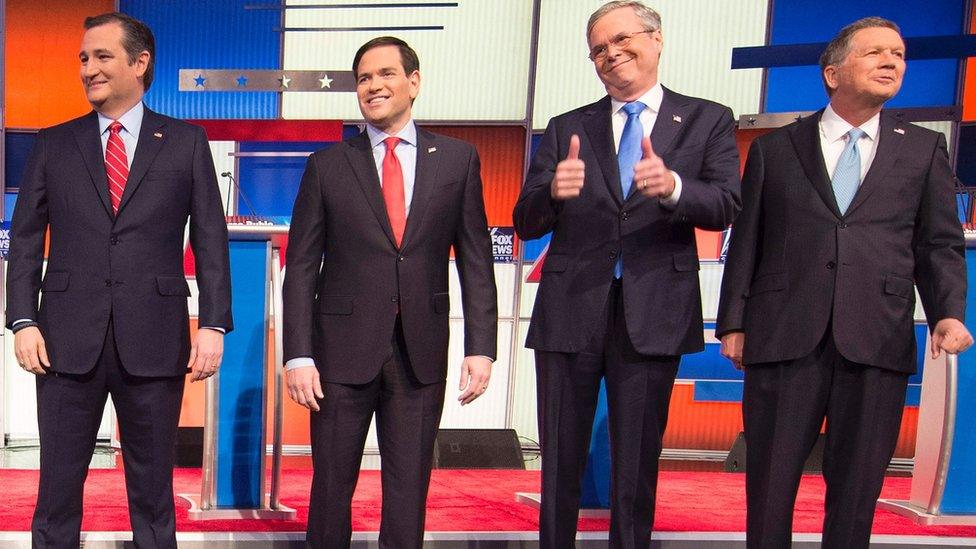
The race for the Republican nomination is over, with one winner - Donald Trump - and 16 losers.
But there are many different shades of losing. There's the silver-lining, get 'em next time variety. Then there's the sitting-in-the-middle-of-the-pitch surrender cobra, external, contemplating-the-bitter-end-of-a-promising-career kind of losing.
The 2016 Republican presidential campaign brought us plenty of both.
So, from almost-first to worst, here's how the men (and woman) who came up short rank in terms of the relative catastrophic nature of their defeats.

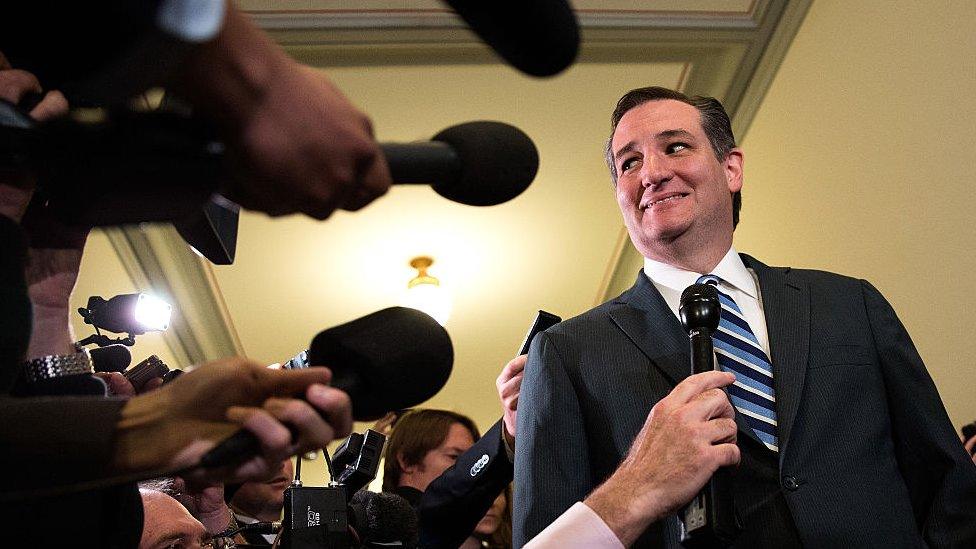
16. Ted Cruz
The Texan entered the race roundly disliked by his Washington colleagues. He exited it … still largely disliked, but with the support of more than seven million primary voters.
There's little doubt that the Texas senator is going to run for president again in 2020, and while he was considered a long-shot this year, he likely will be a front-runner next time around. Although this year was a glaring exception, second-place finishers usually become the "next in line" for the Republican nomination.
Mr Cruz now has a national fundraising network, solid name recognition and, thanks to his position as the last realistic non-Trump candidate standing, endorsements from Jeb Bush, Wisconsin Governor Scott Walker and South Carolina Governor Nikki Haley, among many others. While they won't necessarily back him next time around, it'll be a lot harder for them to paint him as a dangerous extremist.
Advantage Cruz.

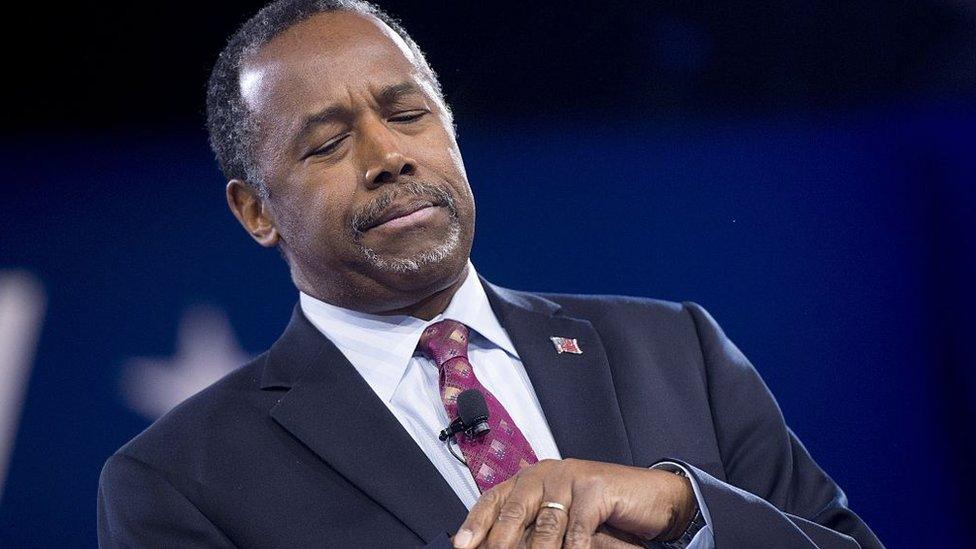
15. Ben Carson
A man with the energy levels of a eucalyptus-addled koala managed to hang near the top of Republican presidential preference polls for several months last year. He was a fund-raising powerhouse and now has a small-donor list that will be coveted by other candidates and conservative causes.
Carson has cast his lot with Trump and is serving as the New Yorker's ambassador to fellow Republicans and involved in the search for a vice-presidential nominee.
Not too bad for a retired neurosurgeon with no previous political experience.

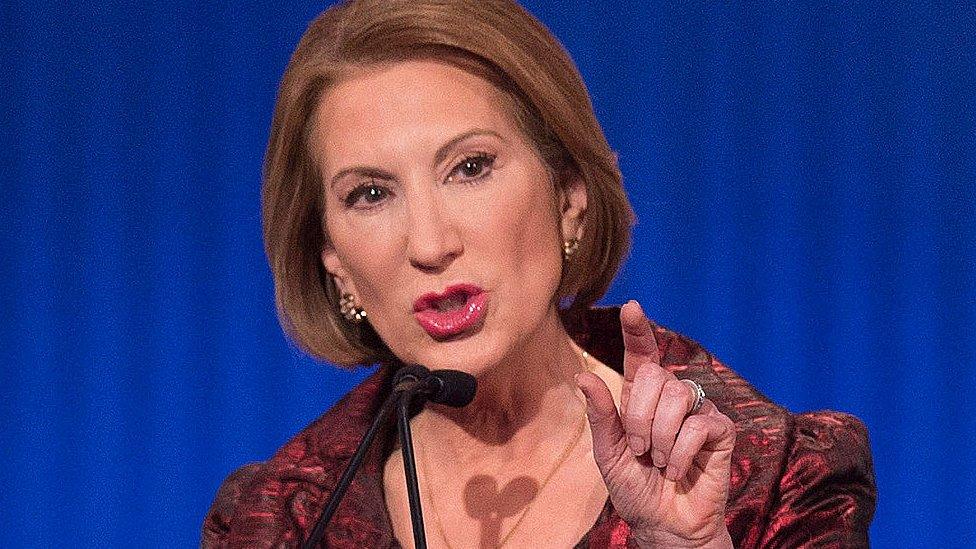
14. Carly Fiorina
A year ago Fiorina was only known (if at all) for a spectacularly unsuccessful Senate bid, a classic demon-sheep political attack advert, external and her stormy tenure as head of computing giant Hewlett-Packard.
Since then she was the star of the first undercard debate, the only match for Trump in the second big-stage debate and generally well-received at countless Republican presidential cattle calls during the primary pre-season. Although her campaign fizzled when it turned out she was a popular candidate no-one actually wanted to vote for, she did become an effective Cruz surrogate and was even selected to be his vice-presidential running mate. Sort of. For one week.
Still, that's a big step in the right direction for Fiorina.

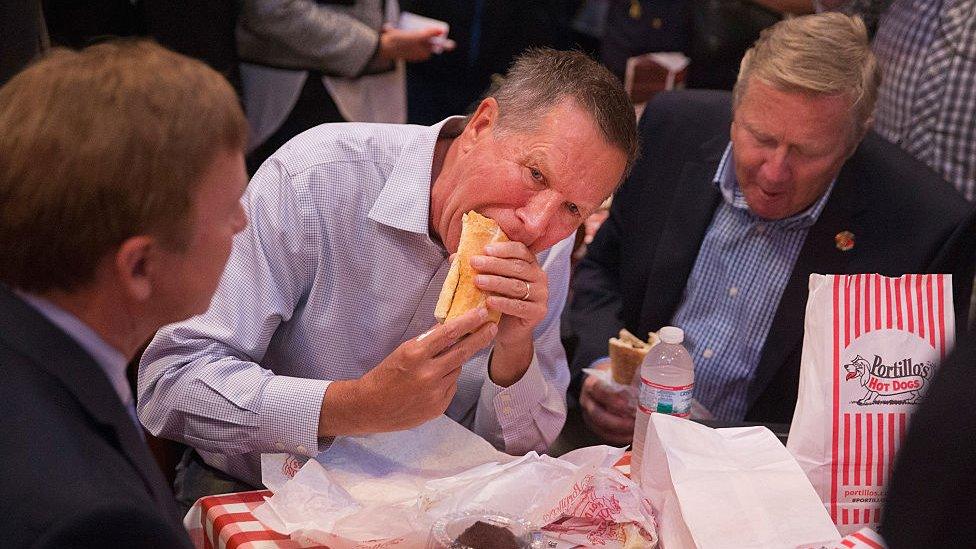
13. John Kasich
Where to put John Kasich on this list? He finished third behind Trump and Cruz in the overall popular vote, but that was only thanks to winning his home state of Ohio and the fact that his quixotic bid for the presidency dragged on longer than any other candidate not named Donald Trump. (He actually also finished behind Marco Rubio, who dropped out more than a month before him, in delegates.)
His New Hampshire-centric campaign strategy was good enough to get him second place in the state and give his candidacy extended life, but all that really did was muck things up for Rubio and, to some extent, Jeb Bush (who didn't really need much help in the mucking department).
Other than that, he had lots of interesting meals, external on the campaign trail and largely took the high road during his campaign, avoiding most of the slime that will stick to other candidates. Unlike many of his erstwhile adversaries, he has a full-time day job as a popular governor. He'll land on his feet.

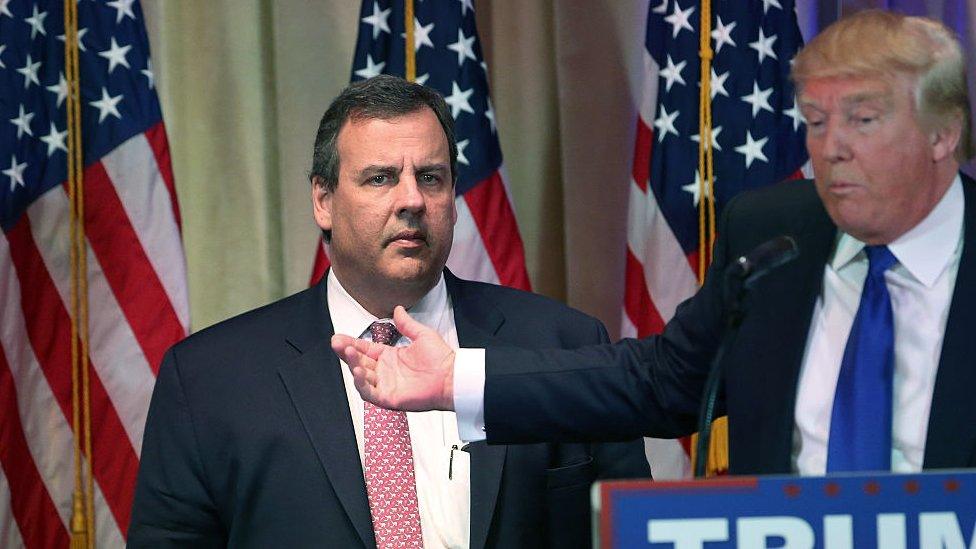
12. Chris Christie
Rumours that Chris Christie has a stuffed replica of Rubio's head mounted on the wall of his study are unfounded, but Christie as a candidate will largely be remembered for his moment as a cool-eyed assassin, knifing Rubio on the debate stage just days before the New Hampshire primary.
Whether he ends up a big loser or a sort-of winner when all this is over, however, will likely rest on what happens to the Trump-sized star he hitched his wagon to after he dropped out of the race.
The Christie endorsement was a shock to the political system when it happened in March, and he has been mocked widely for his vacant-eyed stare, external while standing behind the front-runner on the campaign stage.
The New Jersey governor's approval ratings in his home state also have plummeted to eye-popping lows. But none of this will matter if Trump wins the White House in November and Christie, as an early passenger on the Trump train, claims his reward for loyalty.

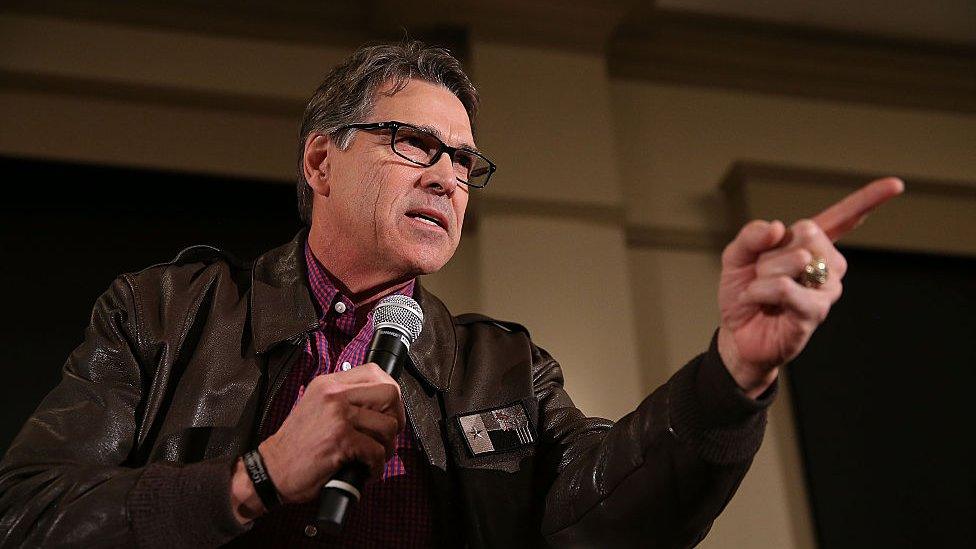
11. Rick Perry
Rick Perry's second presidential bid didn't end with him cratering due to a huge, embarrassing gaffe, external during a debate, so that's a win right there. He never made it onto the prime-time stage, however, so his chances to impress - or implode - were limited.
Despite his long resume as a popular governor of a major state, Perry was largely an afterthought on the campaign trail. He gave up the ghost with a flourish, calling Donald Trump a "cancer on the conservatism", and he has since only occasionally resurfaced - to endorse Cruz and then Mr Cancer himself, Trump.

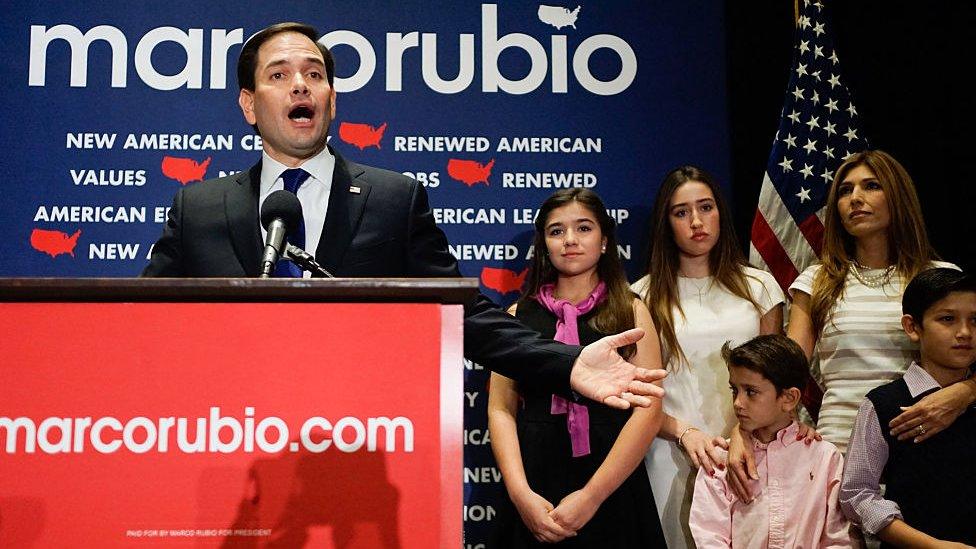
10. Marco Rubio
"I have heard some suggest that I should step aside and wait my turn," the 43-year-old first-term senator said when he kicked off his presidential campaign last April. "But I cannot."
Maybe he should have listened. Rubio was anointed last autumn as the great hope of the Republican establishment and appeared poised for success after a surprisingly close third-place finish in the Iowa caucus, but he came unglued soon thereafter (with a little help from the aforementioned Christie).
After Trump began racking up wins in March, Rubio made the ill-fated and since-regretted decision to emulate the front-runner's sometimes juvenile, mocking style. It flopped, and he dropped out after losing his home state of Florida.
Although he still could have a long political career ahead of him, after this year he'll be out of the Senate. He could run for Florida governor in 2018, but thanks to that crushing primary defeat and the "little Marco" epithet Trump hung on him, his lustre as a rising star in the Republican Party is greatly diminished.

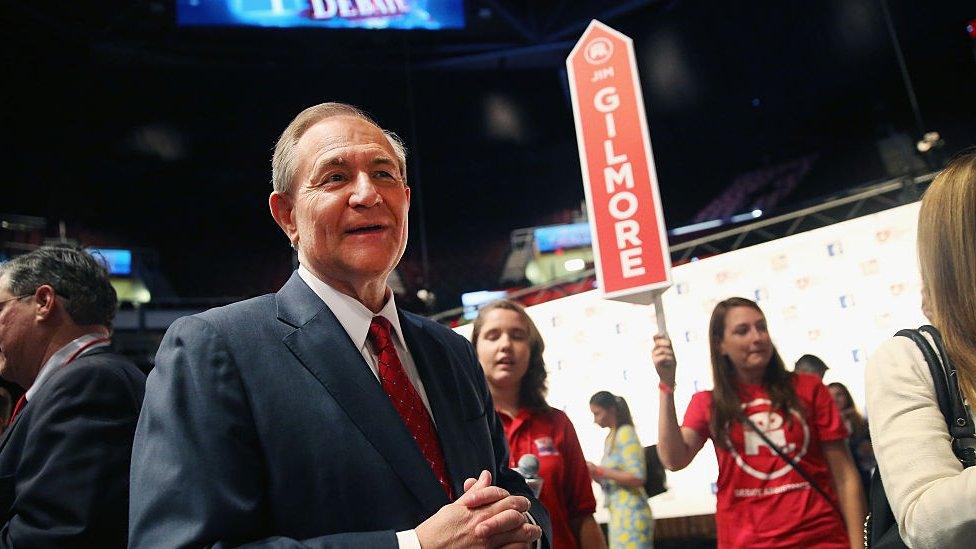
5-9. Lindsey Gilmor-ataki Santor-abee
When you've got nothing to risk, there's nothing to lose, right? There were a handful of candidates in the race this time around whose chances started around zero and didn't budge. Sure, they got some face time in the undercard debate - and Mike Huckabee even made it to the big stage several times - but they largely ended up where they started, or slightly worse.
Huckabee and Rick Santorum were both former Iowa caucus winners, but they flamed out in the cornfields this time around. Then, after dropping out, Santorum had an epically bad turn, external as a surrogate for Rubio, which will likely foreclose any such future opportunities.
Former Governor Jim Gilmore, who finished with fewer votes than joke candidate Vermin Supreme in New Hampshire, couldn't even win a spot as a Virginia delegate to the Republican National Convention.
Lindsey Graham will be remembered most for his folksy, humorous performances during the debates. George Pataki won't be remembered at all.
All five of these men paid the $40,000 entry fee to get on the South Carolina primary ballot. None of them were still in the race by the time the third-in-the-nation contest rolled around in late February. The South Carolina Republican Party appreciates their support.

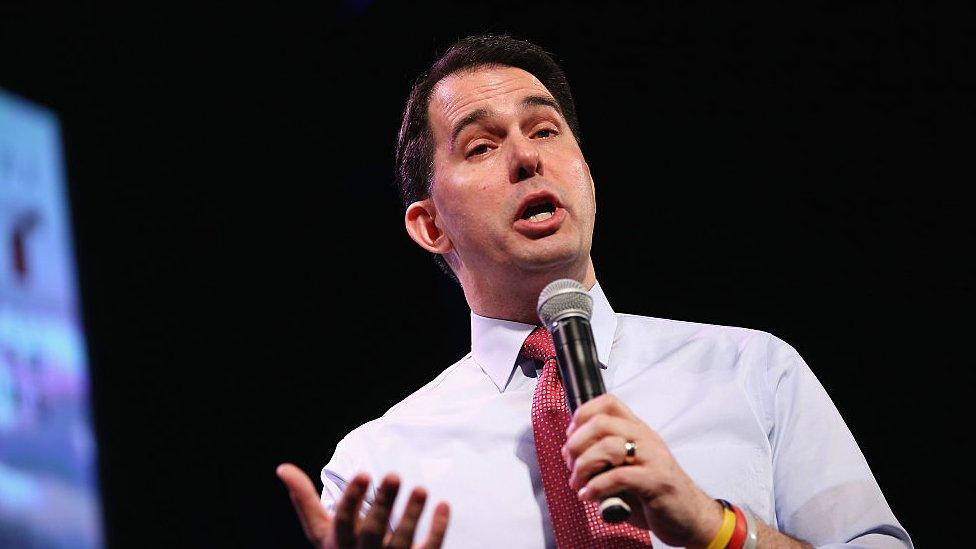
4. Scott Walker
"The flame that burns twice as bright burns half as long," as the saying goes. And for a short time last spring, Walker's presidential flame burned bright indeed.
It turns out, however, that the blaze was from millions of dollars being burned on a bloated campaign infrastructure that was unsustainable when poor debate performances and Trump's sudden rise dried up Walker's fund-raising dollars.
The man considered in the top tier of presidential candidates was out by the end of summer. If there's good news, however, it's that he didn't have to endure the primary bloodbath that took place in the ensuing months. He can spend the next four years attempting to fix some of his most glaring errors, such as his scant foreign policy knowledge, and make another run in 2020.
For Walker, his best campaign move may have been deciding not to play. Strange game indeed, external.

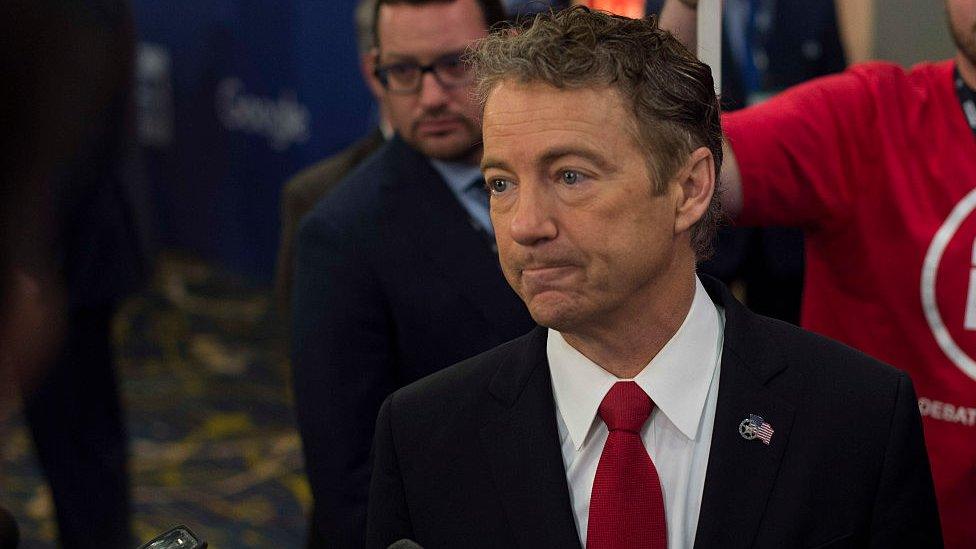
3. Rand Paul
Much was expected of the candidate once dubbed "the most interesting man in American politics" by Time magazine, external.
His brand of libertarian-leaning conservative politics was gaining stock within the Republican Party, and his father had run a surprisingly successful, well-funded insurgent campaign in 2012.
Alas, it was not to be. Paul never seemed to enjoy his presidential run, and it showed. While he had a few moments that stood out during the debates, he largely served as a foil for other candidates to display their hawkish foreign policy sensibilities, which were much more in line with the Republican primary electorate. The party's "libertarian moment" turned out to be a mirage, and Paul was left wandering the desert.
Many thought there was an opportunity in 2016 for an outsider to flourish, and Paul was the most likely candidate to take advantage. Only the first part turned out to be true.

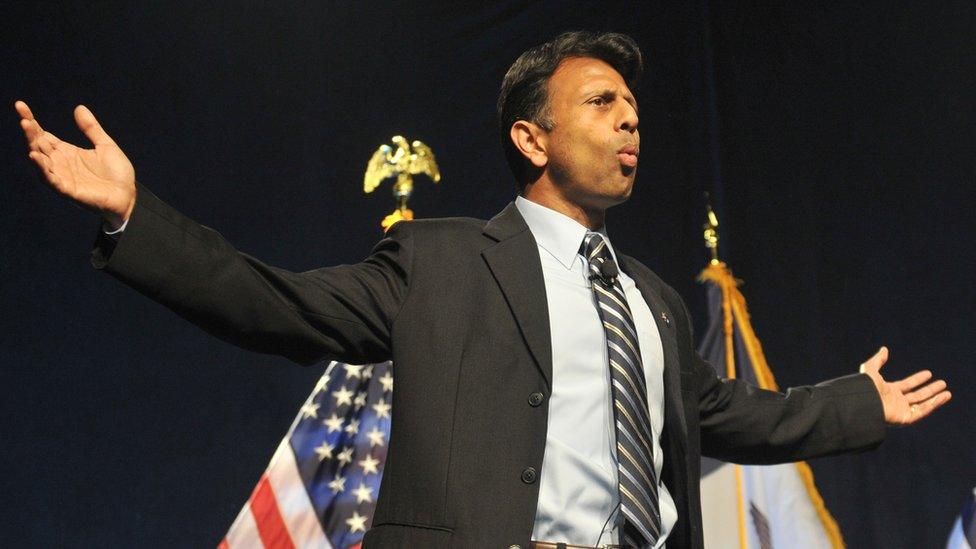
2. Bobby Jindal
The former Louisiana governor was once considered a charismatic policy-wonk who could be a new face of the Republican Party and a possible answer to Barack Obama. Then he got bogged down in Louisiana's energy-bust budget woes and became deeply unpopular in his home state.
Perhaps sensing that an issues-focused presidential bid wasn't going to fly in 2016, he spent most of the campaign touting his social conservative credentials to no avail. The high point was hitting 7% in one Iowa poll, but Jindal-mentum was fleeting and he was gone by mid-November.
Now he's out of public office, with no obvious constituency and little chance of successfully re-entering Louisiana politics. He may hope for a position in a Trump administration, but his recent tepid endorsement, external of the presumptive nominee rings a bit hollow after he condemned the man last autumn, external as a narcissist and egomaniac who "looks like he's got a squirrel sitting on his head".

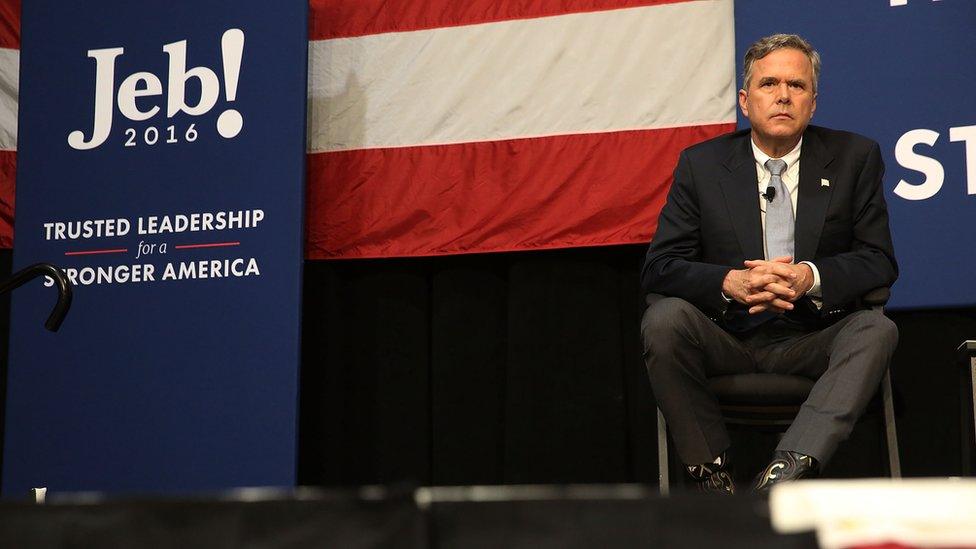
1. Jeb Bush
There are more than a hundred million reasons why Jeb Bush is the biggest loser of the 2016 Republican presidential campaign - one for each dollar he and his affiliated super-PACs raised in an effort to win the nomination through "shock and awe".
Republican voters, it turns out, responded with shock and "aww, hell no".
It's easy to attribute Bush's catastrophic turn as the Republican front-runner to Trump's bullying, but even without the New Yorker's constant belittling and bashing the flaws in the candidate with the presidential last name should have been obvious.
On the stump he was often lacklustre, repeatedly burying his applause lines and delivering remarks without enthusiasm. And he was decidedly out-of-step with the conservative base on issues like immigration and education.
While many of the other candidates on this list are young and have time to resurrect their political careers, at age 63 Jeb's run is likely over. The US won't have the Bushes to kick around anymore - at least until George P, external launches his presidential bid in 2032.
Got an issue with these rankings? Are you an indignant relative of Jeb Bush or Bobby Jindal? Tweet me at @awzurcher, external and tell me how wrong I am.
